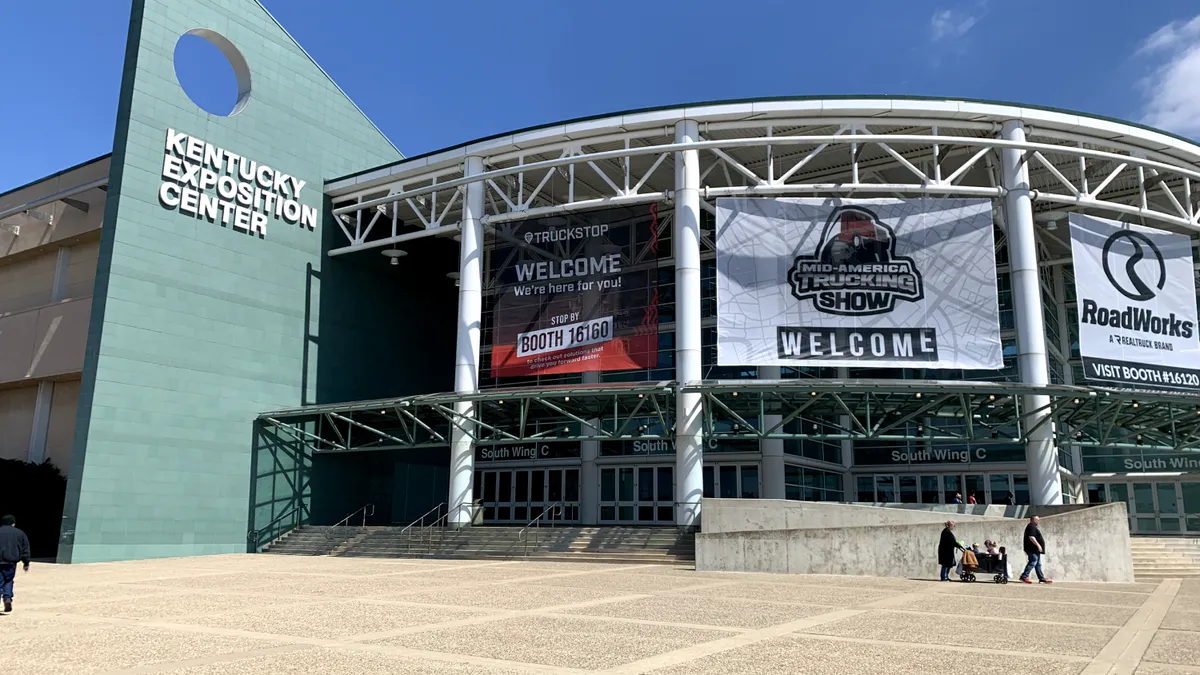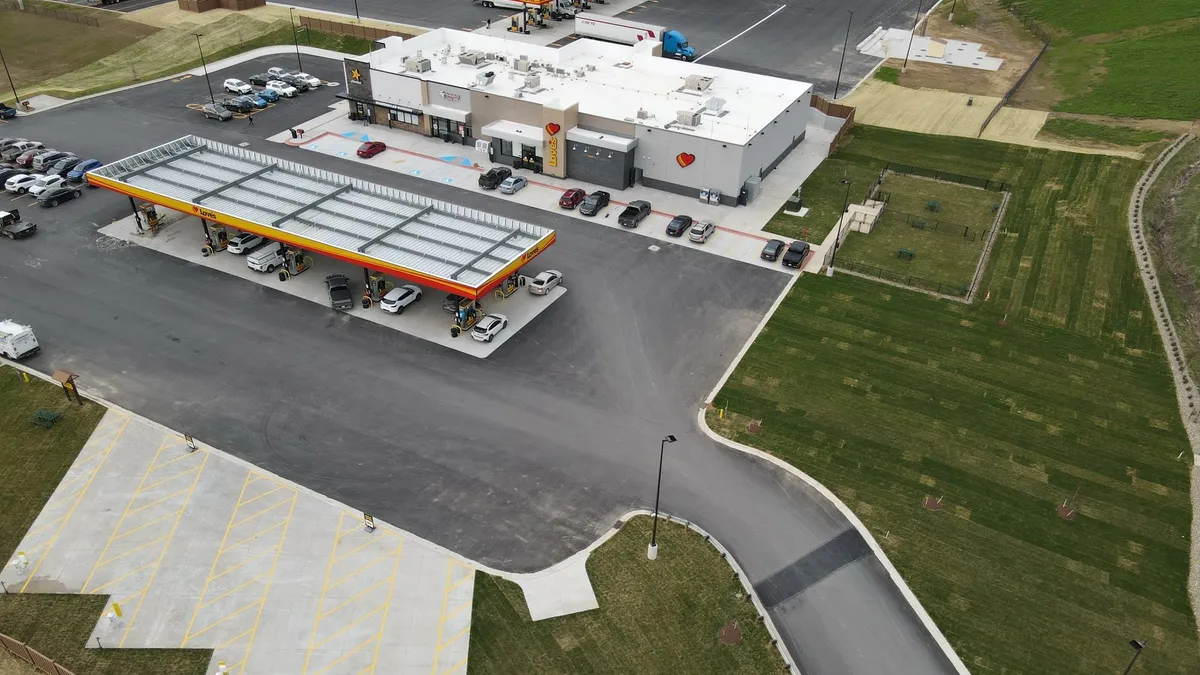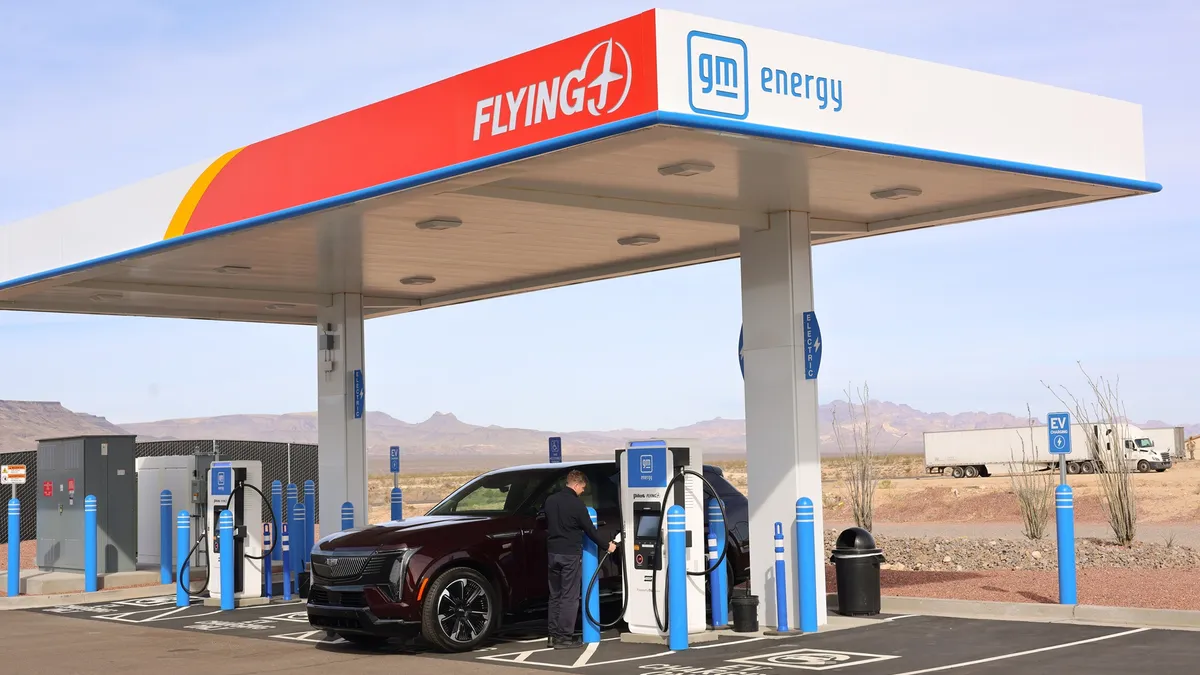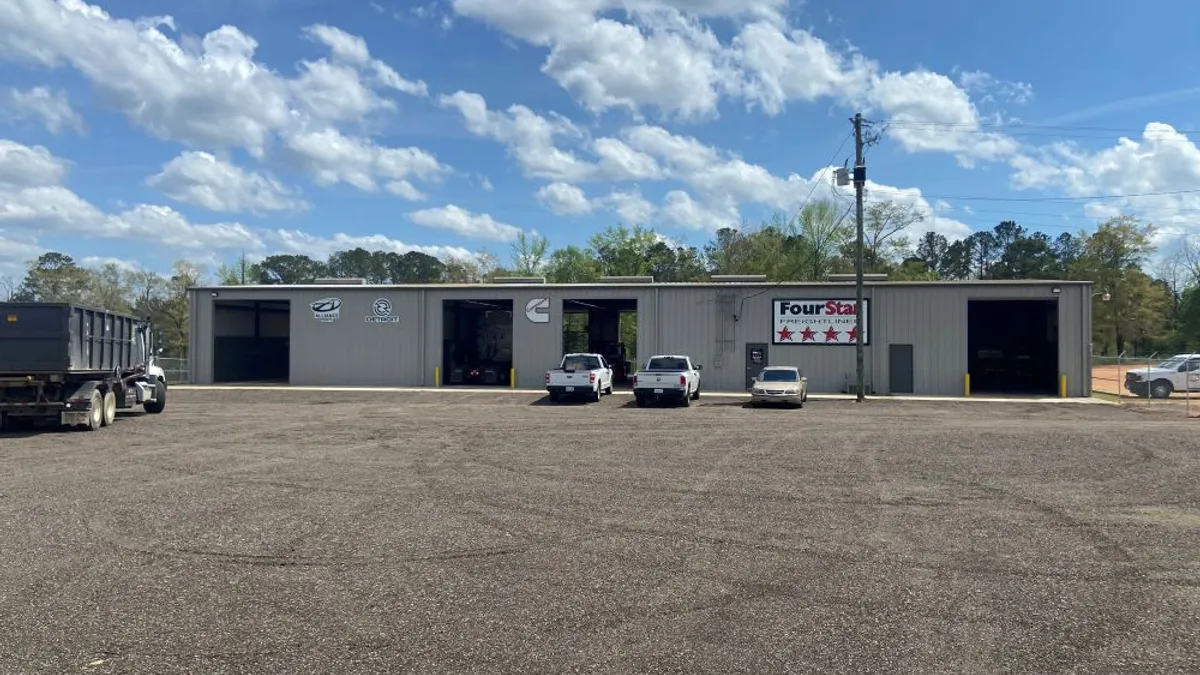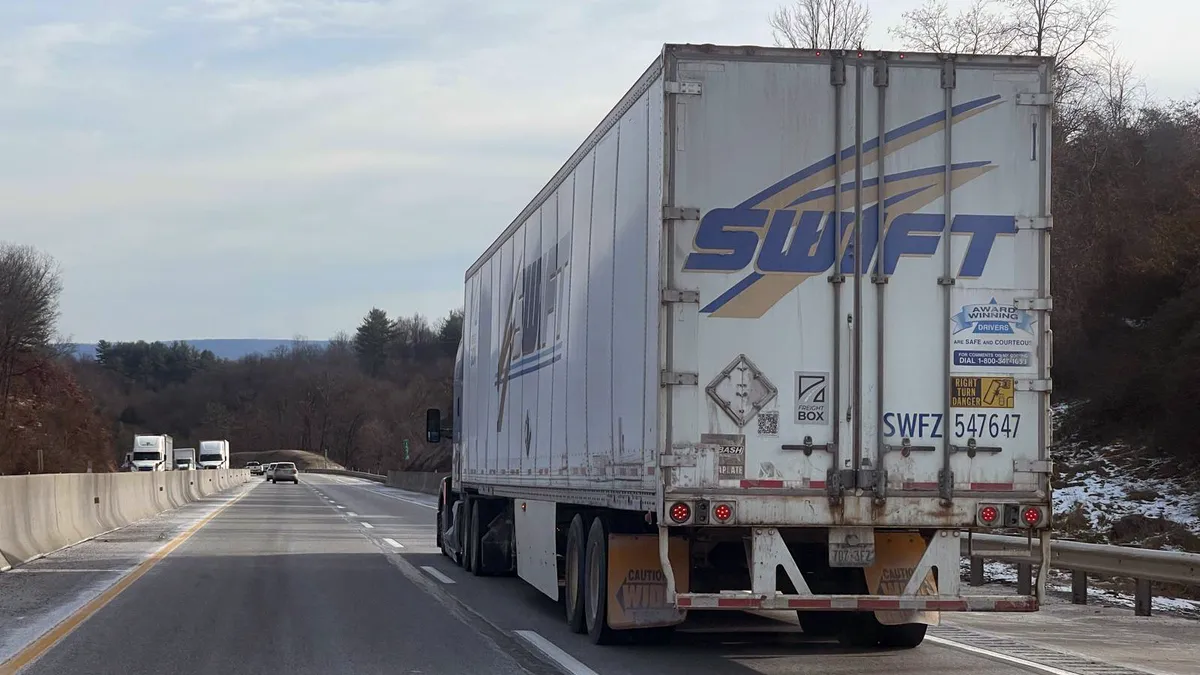Fleets dealing with effects from the COVID-19 crisis — from low rates to concerns about worker safety — are about to enter another danger zone: hurricane season.
And it could be an active one. Penn State University recently released its annual hurricane forecast, estimating 20 named storms.
"The good thing about hurricanes is you usually have time to prepare," Rick Todd, president and CEO of the South Carolina Trucking Association, told Transport Dive in an interview. Fleets, especially those that operate in the southeastern U.S., are no strangers to hurricanes. They know how to prepare and then move supplies after storm damage is cleared and recovery begins.
But COVID-19 is a big unknown. "Nobody’s got a playbook for this," he said. Different sectors of the industry are being hit differently, but overall the industry "is probably more engaged right now in just dealing with [COVID-19] and hoping and praying that we have a good, easy hurricane season," Todd said.
Fleets can take lessons learned from past risk events to develop a plan to manage COVID-19 and hurricane season simultaneously. Experts say that by prioritizing worker safety, reviewing insurance policies and having visibility in their supply chain, fleets can be prepared to handle the two risk events.
Hold the line on both fronts
Gary McLean, fleet manager of the city of Lakeland, Florida, said COVID-19 is starting to bleed into hurricane season. His team started ramping up its hurricane preparations in May, he told Transport Dive in an interview. The department oversees more than 1,000 units, including heavy trucks, construction and industrial equipment, and utility and servicing vehicles.
At the start of the COVID-19 pandemic, McLean worked to secure masks, UV disinfectants and cleaning supplies. Before Florida instituted restrictions, the department changed employee shifts, splitting the shop so half of their employees worked days, and the other half worked nights. The department also sent workers over 65 home with pay. No employees have tested positive, McLean said.
At the same time, the department hasn’t limited what services it provides, but it has been called on to disinfect trucks used by customers who tested positive for the coronavirus.
How to keep workers safe while preparing for hurricane season is a concern, and McLean plans again to reconfigure how shifts work. Most hurricane prep is a two-person job, he said, so social distancing is being reinforced with employees.
A chunk of storm prep starts with preventative maintenance of the department’s vehicles, generators and electrical department (the department has its own, McLean said), and vehicles of its customers.
"It’ll take us all the way through [May] to get everything done," he said. The Lakeland city fleets have been called to help with Florida hurricanes but also disaster response in other states, and he doesn’t want trucks to break down while responding to emergencies, he said.
Review insurance policies with a fine tooth comb – and a lawyer
June 1 and July 1 are common renewal times for insurance policies, and COVID-19-related changes are coming, Michael Gehrt, partner and member of the insurance recovery practice at Pasich, LLP, told Transport Dive in an interview. He expects insurance companies to react "to what I would view are covered claims for coronavirus related loses," he said. "Insurance companies will try to put in policy terms to shore that up and preclude coverage."
He also expects insurance companies to try to fight upcoming hurricane-related claims by attributing business loses to COVID-19. "The insurance companies are going to argue that the hurricane-related loss is not attributable to that but attributable to a larger economic slowdown."
Right now, Gehrt said, "be very careful and review your policies going in, to understand where your vulnerabilities are, and plan accordingly for what coverages you do and don’t have." And, he continued, shore up those holes in coverage.
Learn from last year’s tariffs
While fleets have taken lessons learned from previous hurricanes, Glenn Jones, global vice president of supply-chain platform Blume Global, said the more relatable moment to COVID-19 is last year’s tariffs. "Everybody that was manufacturing in China was trying to get a jump on it," he told Supply Chain Dive in an interview. "Manufacturing plants were on overtime and starting shipping huge vessel container cargo ships. The whole transportation industry had to adapt."
What helped fleets then? "Visibility combined with actions," he said, from knowing where the shipment is, where the inventory is, to knowing if cargo terminals have shifted hours, and when they’re the least congested for the best time to make deliveries.
"If they have that visibility, they will have a leg up" right now and for whatever hurricane season will bring.
Visibility can also help with knowing where and when labor is needed. Right now, Todd said, some fleets "are in a furlough posture," down as much as 40% to 60%. Fleets that haul petroleum and oil are down, for example, while grocery continues to hold strong. Having a clear view on how supply chains in those industries are faring can help fleets know when they need to ramp back up, or if they’re facing a potential shortfall.






